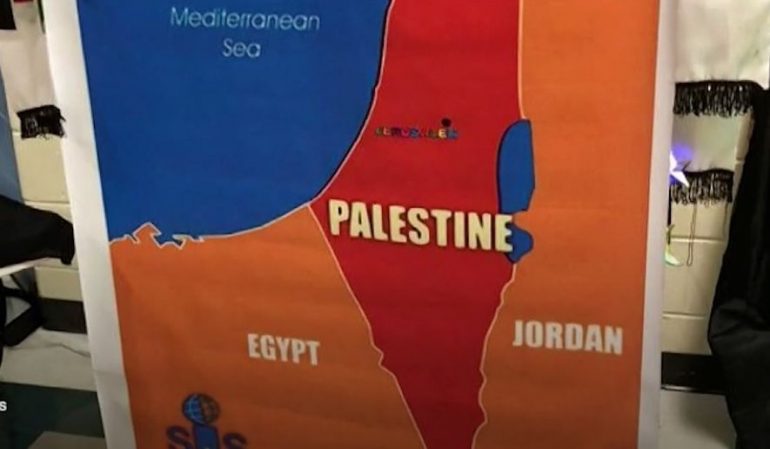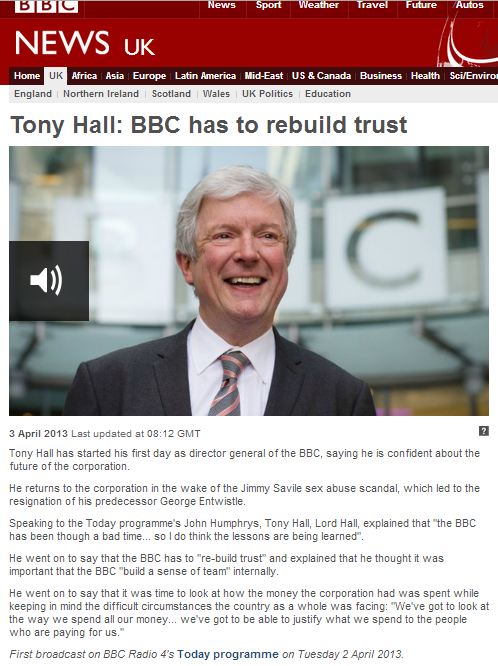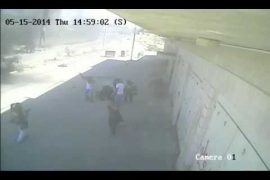The recent round of fighting between Israel and terrorists in Gaza was the deadliest confrontation since 2014. On the Israeli side, four civilians were killed by rockets. A report by Sky News Arabia network on May 5th noted that the Gaza rocket launches triggered alarm sirens in the Israeli communities adjacent to the Gaza border:
“[…] Alarm sirens went off in the settlements surrounding the Strip. [bold by CAMERA Arabic]”
Note Sky News Arabia’s use of the term “settlements”, in Arabicمستوطنات Mustawtanat, when describing communities that are located inside the 1949 armistice lines – an egregious distortion which reflects a trend among Arabic-language Western media outlets. For example, Sky News Arabia has referred to Jewish villages, towns and cities in both northern and southern Israel as “settlements” thirteen times in the past year:
- May 5th, 2019: “the settlements surrounding the Strip”
- May 4th, 2019: “missiles from Gaza on Israeli settlements”, “Israeli settlements on the border of the Gaza Strip”
- March 31st, 2019: “the settlements surrounding the Strip”
- March 26th, 2019: “the settlements in southern Israel”, “the settlements surrounding the Strip”
- March 25th, 2019: “the Israeli settlements surrounding the Gaza Strip”
- January 3rd, 2019: “the settlements of northern Israel”
- November 13th, 2018: “the launching of at least 300 shells and rockets from the Gaza Strip towards Israeli settlements”
- October 27th, 2018: “nine settlements [that lie] in the surroundings of the Gaza Strip”
- August 9th, 2018: “the Gaza envelope settlements”
- July 20th, 2018: “the settlements [that lie] in the surroundings of the Gaza Strip”
- July 18th, 2018: “the settlements surrounding the Strip”
- June 7th, 2018: “the settlements of what is known as the Gaza envelope”
- May 29th, 2018: “the Eshkol settlement [i.e. Eshkol regional council – CAMERA Arabic]”
BBC Arabic has done so twice:
- November 13th, 2018: “the Israeli settlements that surround the border of the Gaza Strip”
- November 12th, 2018: “the Eshkol region, which is nearby the Strip and consists of an Israeli settlement in the northwestern Negev desert”
And France24 Arabic, also did so twice:
- May 6th, 2019: (a summary of an article in Libération, originally referring to the “inhabitants of southern Israel”) “the launching of arson balloons towards Israeli settlements”
- November 12th, 2018: (0:06 in the video) “the Gaza envelope settlements”
The use of the word “settlements” deliberately ignores the historical and legal differences between the two sides of the Green Line and implies that Israeli cities within both pre and post-1967 boundaries are equally illegitimate. Additionally, there is a clear connection between this trend and other terms used by Arabic-language Western media outlets which serve the same delegitimising end.
In 2016, Palestinian sociologist Honaida Ghanim published a comprehensive study of the terminology used in Arab and Palestinian discourse to describe Jews and Zionists throughout the history of what she refers to as “the Zionist colonial project” – from the late 19th century to the 2010s.
As she points out, Mustawtana is a term that was originally used almost exclusively to designate the new Jewish communities established in territories seized by Israel in the 1967 war. Its Arabic morphology, she adds, suggests one’s (the Mustawtin’s مستوطن, settler’s) aspiration to “turn the land into his homeland”. Ghanim holds that Mustawtana and Mustawtin alike were created in the post-1967 era as mildly critical but mostly neutral terms, especially when compared to the more ideologically charged Musta’mara مستعمرة (“colony”) and Musta’mir مستعمر (“colonizer”). The latter were in use among “national” (i.e. nationalist – CAMERA Arabic) Arabs and Palestinians between 1948-1967 and onward, whenever referring to an expression of “Jewish existence in Palestine”. Every single Jewish city, town or neighborhood in Israel was thus labeled “a colony” by Arab nationalists in order to conceptualize the joint effort to annihilate the Jewish state within the wider frame of the “indigenous” struggle for de-colonization across the globe (and the Algerian rebellion against France in particular).
Based on Ghanim’s insights, we can analyze the political positions behind the three media outlets’ choice of the word “settlement”/Mustawtana to describe Israeli communities inside the Green Line. Evidently, they had the following impact:
- Expanded the meaning of the term so that it would include every Israeli Jewish community.
- Did so in a way that emphasizes that both kinds of Jewish communities, which lie on both sides of the Green Line, are equally characterized by the aspiration of their inhabitants to turn the land they reside on into their homeland.
However, contrary to Ghanim’s characterization of the way “settlement”/Mustawtana was conceived as a political term, it can no longer be considered “neutral” or even “mildly critical”. This is because:
- When the meaning of “settlement”/Mustawtana is expanded, the truly neutral terms Qarya (“village”), Balda (“town” or “village”), and Madina(“city”) are being deliberately replaced. All are common terms that Sky News Arabia, BBC Arabic and France24 Arabic regularly use to describe Israeli communities within the Green Line (or, for that matters, any other type of human habitation on the face of the earth).
- “Settlement”/Mustawtana has acquired over the years additional connotations that the Palestinian sociologist did not address in her research. Indeed, few would doubt that in current Arabic use, today’s Mustawtanat is seen just as negatively as the Musta’marat of the 1950s and 1960s – aren’t both a product of illegitimate colonialism, of the illegitimate aspiration “to turn the land into one’s homeland”?
- The regular and consistent use of “settlements”/Mustawtanat to describe Israeli communities within the Green Line is often associated with the official jargon of terrorist organizations such as Hamas and Hezbollah – who indeed see the whole of Israel as “occupied Palestine”. At a minimum, it characterizes the radical and anti-Zionist fringes of 21st century leftist politics; a very telling account in this context is the official position on the matter by the anti-Zionist and bi-national NGO “Zochrot”, an organization dedicated to promote the immigration of millions of Palestinians into what is today Israel as an implementation of the so-called “Right of Return”:
“’Zochrot’ indeed views Kiryat Shmona and ‘Amir [both in northern Israel] as ‘settlements’ [the morphology of the Hebrew התנחלות Hitnachalut is roughly equivalent to the Arabic Mustawtana], but so are Tel Aviv and Ariel [a Jewish city in the West Bank]. They are settlements simply because they were established by immigrants who came from abroad to settle this land and make it their homestead. […] In the onset of Zionism the use of the terms ‘colonies’ and ‘settlements’ was common among the Zionist immigrants. It was [only] a great effort by the Zionist left which succeeded in constructing ‘the settlements’ [within the political discourse] as places in the West Bank where Jews reside. They [leftist Zionists] claim that it is those settlements that constitute an obstacle for peace and their removal is a necessary condition to achieve it.
‘Zochrot’ posits that there is no essential difference between settlements established by Jewish immigrants in the occupied lands of 1948 and those established after the completion of the occupation in 1967 (with the exception of the Syrian Golan settlements, that under a peace agreement would need to move somewhere else or stay under Syrian sovereignty should the Syrians approve). Zionist settlements are, then, any place of residence that was established by immigrants under the custody of Zionism. They are distinguishable from places like Safed, Jerusalem, Tiberias and more, where ‘Palestinian Jews’ resided for hundreds of years, prior to Zionist immigration.
In our view no settlement is bound to “pass on from this world”. It will be possible for Ariel and Kedumim [both in the West Bank], as well as Kiryat Shmona and Tel Aviv, to remain where they are even once a peace settlement between the Israelis and the Palestinians is negotiated and implemented. Once the Right of Return for the Palestinian refugees is recognized and those of them who would like to return will be able to do so, we could live together everywhere in the land […].
The Zionist settlements shall not be erased off the map, but rather be decolonized. Tel Aviv could absorb Palestinian refugees from the villages that used to be on its lands. The Manshiyya neighborhood could reconnect Yafa [sic, i.e. Jaffa] and Tel Aviv. Israelis could live in the land, speak its Arabic language and get acquainted with its culture, rather than merely occupy it. This vision of a shared life in the land seems like a nightmare to the Zionists and they are doing the best they can to keep intimidating the Israelis from the Arabs in order to prevent it. [all in-text remarks are by CAMERA Arabic]”
The conclusion is that any journalist who uses “settlement”/Mustawtana to describe a community within the Green Line is suggesting not only that the Jewish presence in the West Bank is a form of illegitimate colonialism, but that the entire Israeli/Zionist/Jewish political establishment within the historic League of Nations Mandate boundaries of 1947 is as well. When used by Arabic-language media outlets, such terminology serves is parroting radical ideologies which seeks to deny Israel its right to exist.
Moreover, the connection between the misuse of the “settlement”/Mustawtana terminology and other vocabulary which disguises and undermines the existence of Israel becomes clearer. Thus, it’s no surprise that the video embedded in the Sky News Arabia piece from July 18th (No.9 on the Sky list) had “Palestine” in the caption and the Palestinian flag appearing next to the map of the former Mandate. When the entire country is labeled “occupied” “Palestine”, these media outlets – which purportedly uphold Western journalistic standards of accuracy – are similarly legitimizing extremist rhetoric negating Israel’s very existence.
Here are some examples:
-
- BBC Arabic’s Noureddine Zorgui tweets on March 1st, 2019 from his official BBC account about a show he hosted in West Jerusalem, Israel: “[I am] in Palestine this time”
- Sky News Arabia, December 15th, 2018: “Jat [an Arab town in northern Israel], in the occupied internal part [Ad-Dakhil Al-Muhtall, i.e. Israel within the 1949 lines. The word ‘Israel’ is never mentioned – CAMERA Arabic]”
- BBC Arabic, November 12th, 2018: “More than 200 Palestinians were killed in Gaza by the Israeli military since the end of March, most of them during the weekly protests on the border in demand of the right of the Palestinian refugees to return to their homes/houses that Israel occupies today [bold by CAMERA Arabic]”
- France24, October 18th, 2018: the report labels Beit Jimal, a Catholic monastery located within the Green Line manned by clerics from Italy, France and Belgium, as a “Palestinian” target of vandalism that turns to “Israeli authorities” for justice. It is impossible to determine from which side of the Green Line is the monastery located, solely by reading the report.
- Sky News, July 18th, 2018: The video embedded to the news piece has the map of the 1947 British Mandate along with the Arab Palestinian flag and the writing “Palestine”.
Indeed, the Green Line never seemed blurrier in the eyes of Arabic-language Western media outlets.
….
**See more posts about Sky News Arabia here, here, here,here,here,here, here and here.
Research and writing by CAMERA Arabic. Edited by UK Media Watch.




